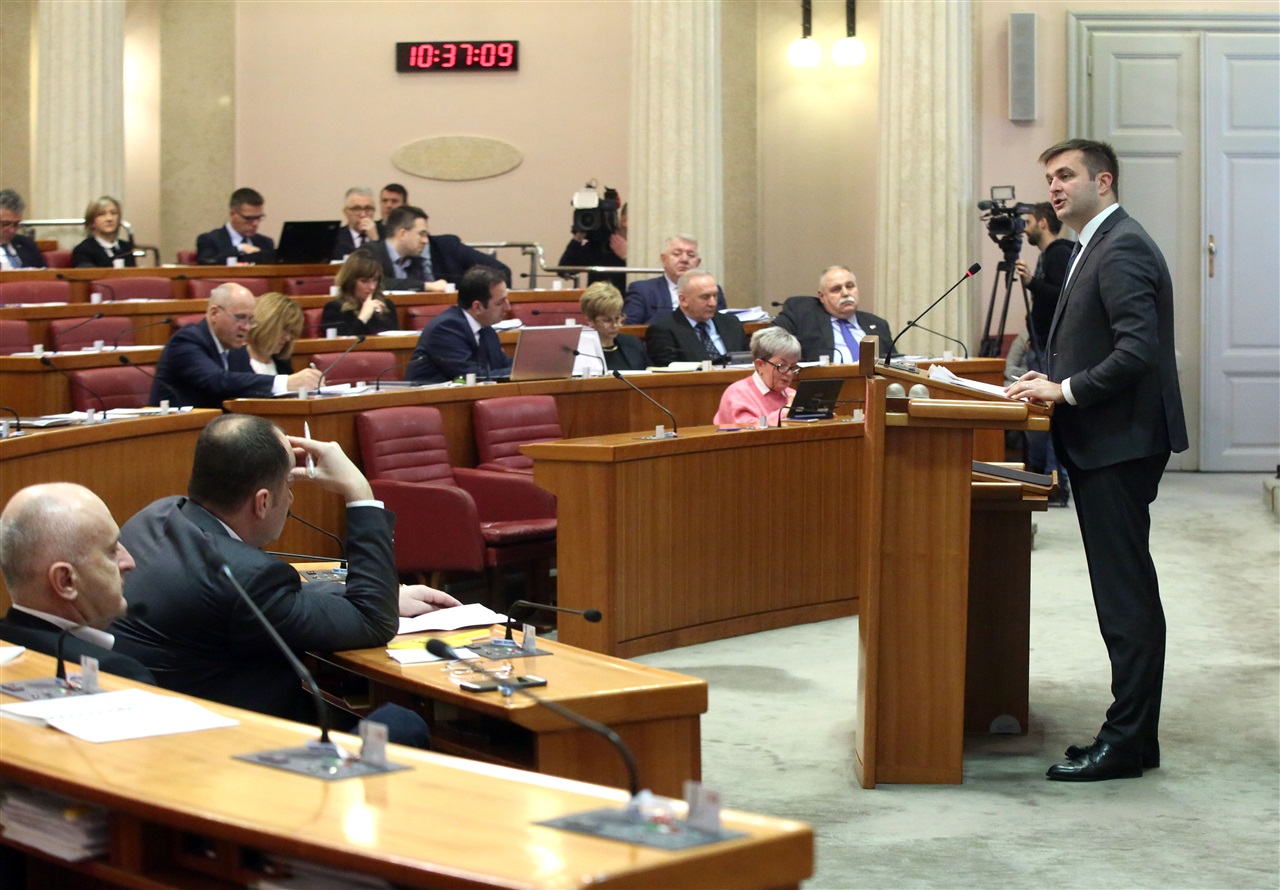
Zagreb - The government-sponsored bill of amendments to the INA Privatisation Law was adopted on Wednesday with 74 votes in favour and two against in the national parliament.
Just before the vote, most of the Opposition lawmakers led by the Social Democratic Party (SDP) walked out of the parliament hall, and the quorum was saved by Zlatko Hasanbegović of the Independents for Croatia and Hrvoje Zekanović of the Hrast party. The latter told Hina that he regretted not having walked out of the hall to undermine the quorum necessary for passing the bill of amendments.
Furthermore, the SDP also withdrew its 306 amendments before the vote took place, as the purpose of those "obstructive amendments" was to show the disappointment of this Opposition party with the fact that the bill was discussed in a fast-track procedure instead of receiving two readings.
INA Privatisation Bill changes only one article.
The INA Privatisation Act, which went into force in 2002, defines the company's privatisation. The bill of amendments which was today adopted changes Article 10 under which Croatia has the exclusive right of control over changes in the company's ownership structure as well as the right to veto certain decisions of the company's management and the right of preemptive buying of the entire company or parts thereof at an estimated market price in case the process of its liquidation is launched.
Under the adopted bill, a party acquiring INA shares and wishing to own an interest of more than 50% should inform the relevant minister about this and submit to the minister a long-term business management plan.
In the relevant ministry's opinion, the government makes a decision on its consent for the acquisition of shares within a 30-day period. The government can withhold or withdraw its consent if it decides that it constitutes a serious threat to public security and puts the country at serious risk of losing secure, reliable and regular energy supply.
The government explained that the changes were necessary to align the 2002 law with the European Union's acquis.
On the other hand, the Opposition accuses the current government of betraying national interests through this change and that it is turning over INA to the Hungarian energy group MOL, which already holds about 48% of that leading Croatian oil and gas group.